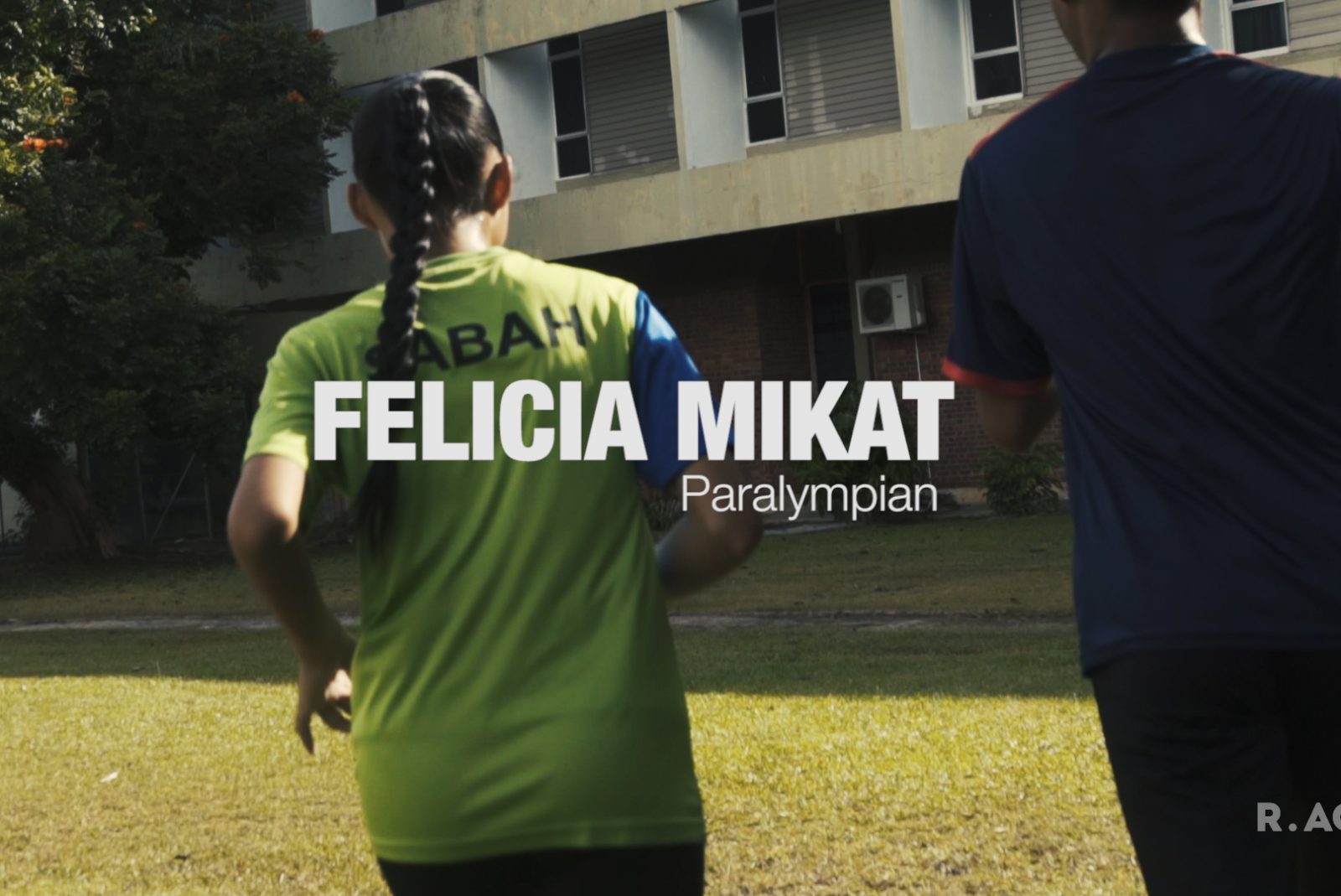MALAYSIAN Paralympian Felicia Mikat, 18, is now feted nationwide for the three gold medals she brought home from the 8th Asean Para Games in 2015.
But as a young girl, there were no cheering crowds, just jeering children from her village in Tambunan, Sabah, all because she was blind.
“Being teased for my blindness hurt a lot,” she said. “They said things like ‘you can’t play with us, your eyes are weird’.”
Of course, things are different now that she has her gold medals in the 100m, 200m and 400m race categories, even back home with her childhood tormentors.
“A lot of them now tell me how proud they are of me,” she said without a hint of resentment. “They say they’re proud to have me as a friend.”

Felicia and the other para athletes jumping hurdles during their weekly training for the next ASEAN Para Games.
Felicia was born legally blind, under the International Blind Sports Federation’s B3 medical classification for paralympic blind sports.
In layman’s terms, if sight could be measured on a scale of one to 10, Felicia’s would be somewhere around a six.
“I knew I was blind for as long as I can remember,” she said.
“When I was three, I had to have my right eye operated on to improve its vision, and when I was four, the left.”
Those treatments didn’t come easy. Her father worked as a rubber tapper and only earned about RM200 a month. Not enough to sustain a family, let alone pay for medical treatments.
Luckily, they received RM1,800 a month from the government, allowing them to slowly scrape enough money together to pay for Felicia’s treatments and subsequent education at a special needs school in Sabah when she turned seven.
The school was located four hours away from home, which meant Felicia spent months at a time without her parents.
To overcome her loneliness, she threw herself into school, and when a teacher suggested she try running, she made the sport her life.
Felicia may have come a long way from those days, but one thing has remained constant: her love for running.
“I enjoy it,” she said simply. “It’s syok (exhilarating), and the third most important thing in my life right now next to god and my family. I get most of my support from my coach and my athlete friends.”
It may seem like fun and games, but the life of an athlete, sighted or not, is physically demanding and fraught with risks.
Case in point: Minutes before the interview, Felicia slipped during one of her routine training exercises and twisted her ankle.
There was a patch of uneven ground which caught her foot as she was jumping over a hurdle.
“That’s the thing about sports,” she said. “You never know when something is going to happen, whether in training or during a competition.”
It can be frustrating knowing that something as small as a bumpy patch of grass could destroy one’s hopes of sporting glory, but Felicia takes it all in stride.
“I’ve felt like giving up in the past,” she said. “Especially when faced with an exercise I find difficult to do. But my coach and friends are always there to encourage me.
“They tell me not to give up, to keep pushing myself and be better, and that I have the potential to be the best.”
Felicia has some advice of her own for those who bully and tease special needs children, as well as the children themselves.
“Don’t think that just because you’re able bodied, that makes you better than those who aren’t,” she said.
“And for those on the receiving end of the bullying, you have to be strong. Ignore what others say about you and focus on being happy.”


Tell us what you think!